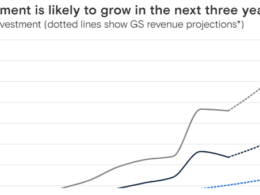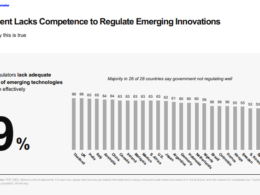the health
transformation
knowledge portal
Joaquim Cardoso MSc
Founder and Chief Researcher, Editor & Strategist
March 11, 2024
What is the message?
The integration of artificial intelligence (AI) into digital health presents significant opportunities for innovation and improvement in patient care, but it also comes with inherent risks and challenges that must be addressed.
Pharma companies exploring companion apps for their therapies can harness AI’s power to enhance patient targeting, drive conversion and adherence, screen for mental health comorbidities, and improve overall treatment outcomes.
However, it is crucial to prioritize data integrity, privacy, security, and regulatory compliance to ensure the safe and effective use of AI-driven technologies in healthcare.

This summary is based on the article “The Power (And Peril) Of AI In Digital Health”, published by Forbes and written by Kal Patel, M.D on March 8, 2024.
What are the key points?
Data-driven Insights: Successful companion apps leverage AI to analyze novel datasets and generate actionable insights that traditional data sources cannot provide, enabling personalized and effective patient care.
Patient Targeting: AI enables the identification of patients most likely to benefit from a therapy, enhancing both clinical outcomes and resource allocation in patient recruitment and engagement efforts.
Conversion and Adherence: AI-powered companion apps facilitate therapy initiation and adherence by addressing barriers and personalizing interventions based on individual patient motivations and circumstances.
Mental Health Screening: AI-driven technologies can screen patients for mental health conditions, addressing a significant comorbidity burden and improving overall patient well-being.
Privacy, Security, and Compliance: As AI technologies evolve, ensuring data privacy, security, and regulatory compliance becomes paramount to safeguard patient interests and maintain trust in digital health solutions.
What are the key statistics?
Investment in AI systems for digital health reached nearly $29 billion from 2017 to 2021.
Global economic burden of mental health comorbidities amounts to roughly $5 trillion.
A 2023 presidential executive order and FDA advisory panel initiatives reflect increased regulatory focus on AI in digital health.
What are the key examples?
AI-driven drug companion apps predict therapy churn and personalize adherence strategies based on individual patient needs.
Companion apps incorporate chatbots for empathetic mental health support and screening.
Regulatory frameworks like the EU AI Act and FDA guidance documents underscore the importance of compliance in AI-enabled healthcare solutions.
Conclusion
While AI holds immense promise for revolutionizing digital health, stakeholders must navigate the complexities of data governance, privacy, security, and regulatory compliance to maximize its benefits and mitigate potential risks.
Pharma and medical technology companies should approach AI integration strategically, leveraging internal capabilities and external partnerships to drive innovation and ensure the delivery of safe, effective, and patient-centered care.
To read the original publication, click here.











